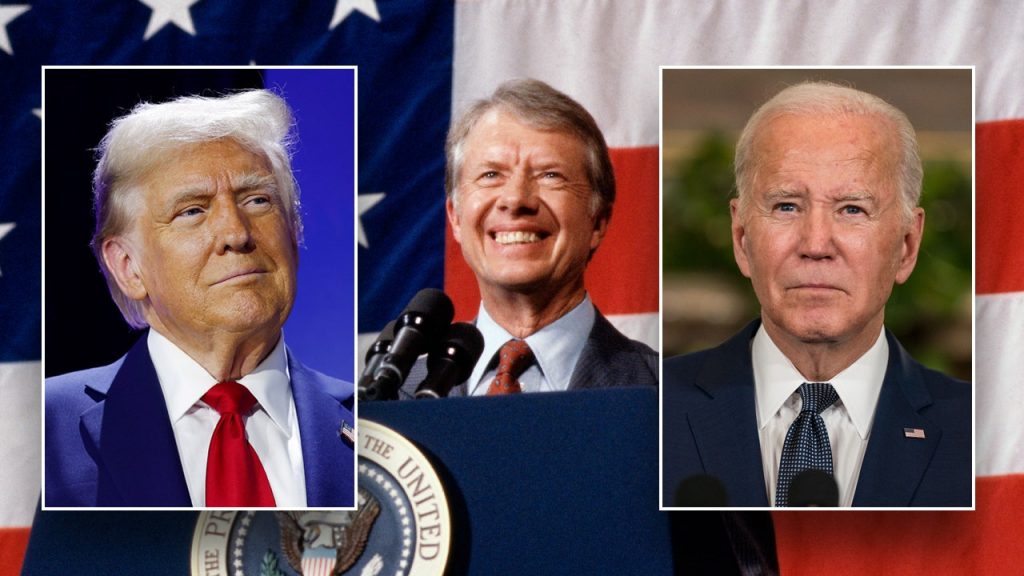Jimmy Carter, the 39th President of the United States, passed away at the age of 100 at his home in Plains, Georgia, prompting tributes from across the political spectrum. Both former President Donald Trump and President Joe Biden issued statements honoring Carter’s life and legacy. Trump, through his Truth Social platform, acknowledged the weight of the presidency and the unique understanding shared by those who have held the office. He praised Carter’s dedication to improving the lives of Americans during a challenging period in the nation’s history, expressing gratitude for his service and offering condolences to the Carter family.
President Biden, who enjoyed a long-standing friendship with Carter, mourned the loss of an “extraordinary leader, statesman, and humanitarian.” Biden emphasized the widespread affection for Carter, noting that millions considered him a dear friend, even without ever meeting him. He highlighted Carter’s unwavering commitment to causes such as eradicating disease, fostering peace, advancing civil and human rights, promoting democratic elections, addressing homelessness, and advocating for the marginalized. Biden celebrated Carter’s character, courage, hope, and optimism, painting a portrait of a man driven by principle and compassion.
Biden’s tribute extended to the deep bond between Jimmy and Rosalynn Carter, describing their relationship as the epitome of partnership and their shared leadership as the definition of patriotism. He expressed solace in their reunion and pledged to cherish their memory. Addressing the Carter family and staff, Biden expressed gratitude for their unwavering support and dedication to the former president’s mission. He encouraged young people and those seeking a life of purpose to study Carter’s example, emphasizing his principles, faith, humility, and belief in the inherent goodness of the American people.
The passing of Jimmy Carter marks the end of an era. His presidency, though just one term, was marked by significant challenges, including the energy crisis, economic stagnation, and the Iran hostage crisis. However, his post-presidency redefined the role of a former president, transforming it into a platform for humanitarian work and international diplomacy. Through the Carter Center, he worked tirelessly to promote democracy, human rights, and global health, earning a Nobel Peace Prize in 2002 for his efforts. His commitment to peace, justice, and human dignity resonated worldwide, earning him admiration and respect across political divides.
Carter’s legacy extends beyond his political achievements. He was a man of deep faith, a peanut farmer with humble beginnings, and a devoted husband and father. His commitment to his family, his community, and his country served as a constant throughout his life. He embodied the values of hard work, integrity, and service, inspiring generations to strive for a more just and compassionate world. His post-presidency work, particularly through the Carter Center, demonstrated his unwavering belief in the power of diplomacy, negotiation, and humanitarian action. His efforts to eradicate diseases like Guinea worm, mediate international conflicts, and promote free and fair elections left an indelible mark on the global landscape.
The tributes from both Trump and Biden reflect the profound impact Carter had on American society and the world. Despite their political differences, both recognized his unwavering dedication to service, his commitment to peace, and his deep love for his country. Carter’s life stands as a testament to the power of principled leadership, the importance of compassion, and the enduring legacy of a man who dedicated his life to making the world a better place. His memory will continue to inspire generations to come, encouraging them to embrace the values he championed and to strive for a more just, peaceful, and equitable future.

